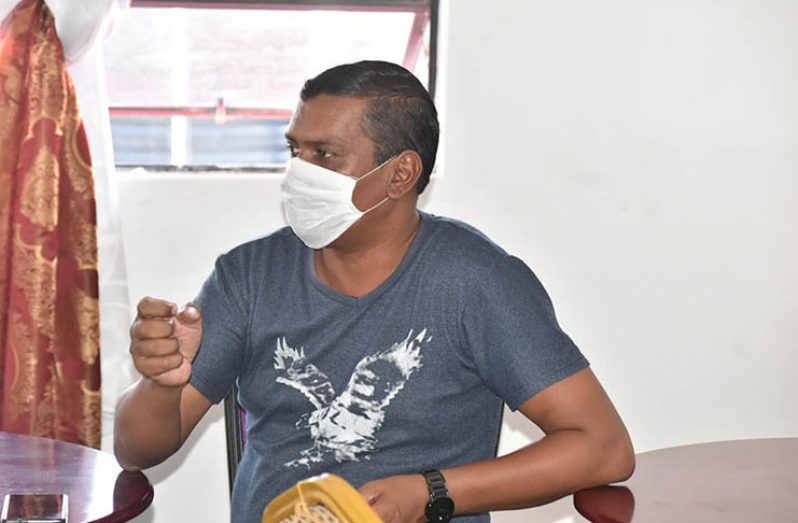THE Department of Education of the Cuyuni Mazaruni region (Region Seven), is in the process of drafting a plan to continue the delivery of education across the entire region.
This region, being the second largest in the country, comprises a number of hinterland communities in Upper and Middle Mazaruni, and in the lower half of the region, there are many riverain communities and the township of Bartica.
Regional Education Officer Akbar Chindu held a series of meetings with head teachers and other education officials last week to draft a plan for the alternative delivery of education to schoolchildren in the region, in view of the present COVID-19 situation in the country.
Chindu said that because of the need for social distancing, the traditional classroom setting will not return to schools for a while, and so the department is undertaking the task to reach children in their homes with the necessary materials needed to keep them on track with their education.
In this regard, several methods are now being explored, including delivery by way of radio, television and the internet. Most of Region Seven has no access to the main stations in Georgetown, and that includes both television and radio. As such, the department in the region took up the initiative to draft a plan that will be unique to their region’s accessibility.
The proposed systems that will be implemented in the new week also requires parents to play a more active role in the process.
Chindu told this publication that parents will be asked to uplift worksheets from the various schools to be used as a guide at home. Additionally, several scheduled programmes on the local radio station and on TTS Ch-5 Television station will bring the teachers into the homes.
He said that the department is awaiting the programmes from the National Centre of Educational Resource Development (NCERD) and the Guyana Learning Channel to air on their local station so that the children there can have the same access to education.
Consequently, parents are asked to ensure that the TV sets at home are adequately equipped to receive the local television signal.
The internet connection in the region too is not widely accessible to properly facilitate online classes; however, there are a number of students who have access through data service on their cellular phones and are therefore able to access online classes.
To this end, Chindu said that they have been facilitating training sessions with teachers, two per hour, teaching them how to use the Zoom online platform to continue their classes.
In addition, the department also purchased 20 tablets to issue to special needs children so that they too can continue learning at home.
The Bartica Special Needs School has a student population of 12, so the tablets are enough for each child. Chindu said the tablets have already been purchased but are awaiting the learning programmes to arrive from the Special Needs Unit of the Ministry of Education to have them installed on the tablets before issuing them to the children.
In relation to the far-flung communities and villages, Chindu said it is a lot more difficult to access those, given that no planes are allowed to fly and due to low water levels, no boats are working. However, he said that food cargoes would go into those communities, and arrangements will be put in place to transport learning materials as well.
In the meantime the schools are closed; he said that they are conducting maintenance to the buildings so that when they are reopened the students will be functioning in a properly maintained facility.




.jpg)









